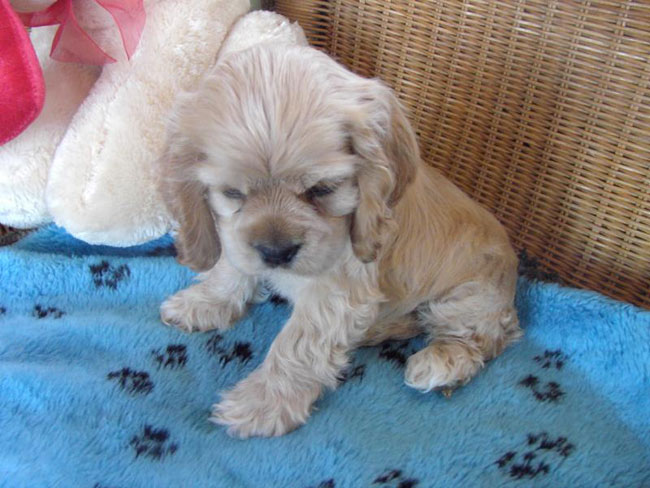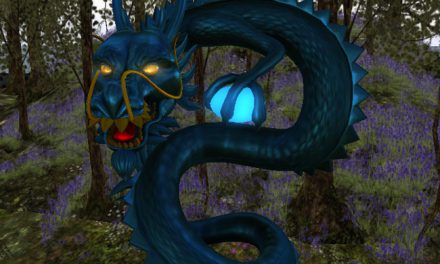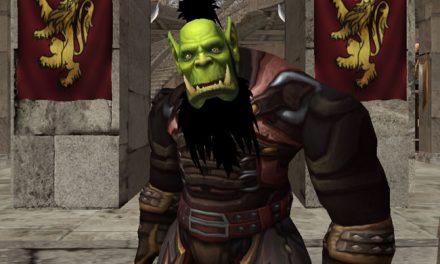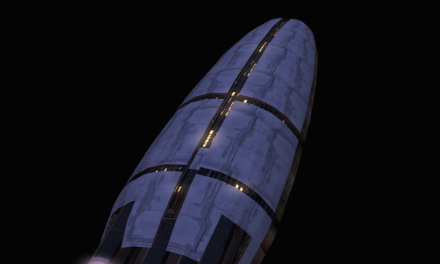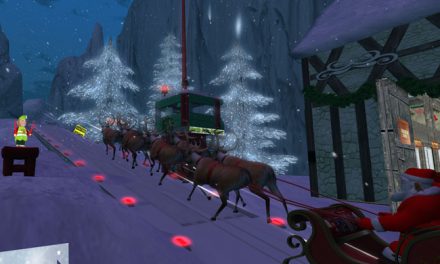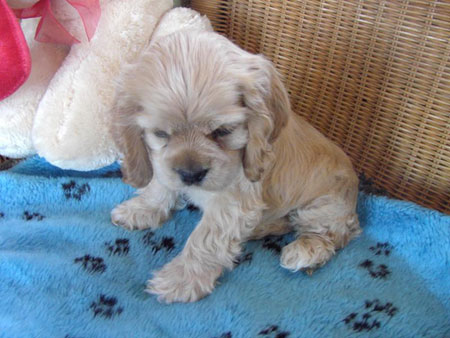 Baggins
Baggins
By
Lorne McMIllan
If Yvonne’s passing was like the ship sinking, then Baggins’ dying was like losing my lifeboat as well. When I was sick, Yvonne had been my rock, my nurse, my love that I depended upon for everything. She kept me afloat through everything. She put me before herself and she paid for that in the long haul. Without her I probably wouldn’t be alive and without me, she might not be dead. Ignoring her own failing health had been her undoing. The doctor said there would have been warning signs that the aneurism was about to burst, but they went unheeded—because she was too consumed with seeing to my needs.
I live with the guilt of that every day.
Baggins, my cocker spaniel, was so named because of one of the rare times that Yvonne and I couldn’t agree on something. We were both fans of the Lord of the Rings trilogy, both the books and the movies, and Yvonne wanted the name Frodo for the tiny puppy when we picked him up at the kennel. I, though thinking along those same lines, wanted Bilbo. I’m sure if Yvonne had read The Hobbit she would have consented to this name, but since she hadn’t, we settled on Baggins.
That little dog was our child, the one we could never really have.
The doctor gave me a clean bill of health at the beginning of May and my wife of forty years was gone by the end of that same month—the Victoria Day weekend, to be exact. I don’t know what I’d have done if it wasn’t for Baggins keeping me from drowning in those weeks following her death. Then, a couple months later, he was gone as well.
I was still in pretty good shape for a seventy-year-old man, so when I found him, I carried him out to the garden that I no longer planted, dug a hole, and said my farewells before covering him up. Tears trickled from my eyes as I threw those first clods of earth on top of him.
Gus, a teenager from down the street, cut my grass once a week back then, had been doing so for a couple of years. It wasn’t a huge lawn and I could have done it myself without breaking much of a sweat or straining my old body—except on those real deadly hot and humid days in July and August, that is. But Yvonne had insisted, even before I had gotten sick, that we pay one of the local boys to do it. They can use a little spending money, she said. And I guess, we had more than enough of it, so why not.
He showed up an hour after I put Baggins in the ground, ready for the weekly lawn mowing. “It’s been so dry, Gus,’ I said to him, “I don’t know how you’re going to even be able to tell where you already cut, once you get going.”
“I could skip this week, if you like, Mr. Simcoe,” Gus offered. I could see he didn’t want to miss this week, really. He probably had plans for that ten dollars already—comic books, chocolate bars, whatever kids those days spent money on.
“Nope,” I said, “you’re not getting out of work that easy.”
“Mr. Simcoe, I didn’t mean….”
“I know,” I laughed, forgetting the loss of Baggins, temporarily. “Go ahead and cut it.”
The task of cutting our small lawn took only about twenty minutes. When he was finished he came and joined me on the front porch, where I had a cold glass of lemonade waiting for him, along with his pay.
Since Yvonne left this world for what we all hope is a better place, Gus had been joining me for a drink on the porch after cutting the grass. I knew it was because he was a very empathetic boy and he probably felt sorry for me, but I didn’t care; I was grateful for the company. I always told him he didn’t have to stick around and hang out with an old man and he always said he liked to do it. I believed him.
“Where’s Baggins?” Gus asked as he plopped himself down on the rocking deck chair next to mine.
I shook my head and his face took on a shocked expression as my eyes conveyed words that didn’t need to be spoken. “I’m so sorry, Mr. Simcoe. Baggins was an awesome dog. I shoulda known something was up when he wasn’t out there barking at me when I started up the mower.” We sat in silence, sipping our lemonade.
Birds tweeted in a nearby tree and the sun soared, reaching for its July fierceness.
“Did I ever tell you how he got his name, Gus?” I asked.
Gus shook his head.
I told him the story. “I don’t know why I didn’t think about that name being from Lord of the Rings,” he said. “I love those movies. Cool.”
“You should read the books,” I suggested. “Including The Hobbit.”
We sat drinking our lemonade for a while longer.
“Will you get another dog?” he asked after a long silence, and then added, “I only ask because the Johnsons, down the road—they have a whole litter of puppies. Man are they cute.”
I hadn’t thought of that. “No,” I answered. “I don’t think so. I’m getting too old. I’ve seen it many times: the owner passes away and leaves the poor thing sad and lonely. And then no one wants the full-grown dog and it ends up in an animal shelter for the rest of its days—however much time that might be.”
I wiped a tear absently with the back of my right hand. A quick glance over at Gus confirmed he hadn’t noticed.
“Gus,” I said, and he turned to look, taking a large sip from his glass. “How would you like to make a little more money?”
He smiled. “I sure would. I’m trying to buy myself this new bike. It’s a Schwinn and my dad said that if I wanted an expensive bike like that, I’d have to buy it myself. So I’ve been saving every dollar I make cutting grass.”
“How much is that going to run you?”
“It’s a Titan and it’ll be over four hundred, with the taxes.”
“That sounds like a lot for a bike,” I said.
Gus shook his head. “Not really. Not for a Schwinn like that. It’s a mountain bike and I’ll be able to ride it all over town, and even up onto the Western Park trails.”
I nodded and put an appraising smile on my face. “How much do you have saved?”
“Well,” Gus said. “I opened the bank account two weeks ago—my mom helped me do that—and I put twenty in to start. So now I have thirty. Since we haven’t had much rain, no one else lets me cut their grass. They all say there’s no need, which I guess there really isn’t, but you’re nice, and let me cut it anyway.”
I was nice. Good to hear, even though my letting him cut the grass was for a less altruistic reason than charity. It was better than saying, hey kid, here’s ten bucks to sit for a spell and talk to an old geezer. Although that’s kind of how I felt.
“Come with me,” I said, and got up from my chair. I didn’t get up as fast as Gus, but I didn’t think I moved too badly for an old guy. The screen door creaked as I pushed it open and led the boy inside. A little WD-40 would rid my world of that annoyance, I thought, full well knowing I would forget to do it. Got to fix that one of these days, Ma, I thought with the image of Percy Kilbride as Pa Kettle in my mind.
We went through the kitchen, along a short hallway past the bathroom. I pulled the door closed as we went past; the toilet and sink were a horrible mess, and I had no desire to share its deteriorated condition. The spare room was before the bedroom Yvonne and I had shared for the last million years and this is where we went.
There wasn’t a bed in there anymore, just an old desk, a battered wardrobe, and about two dozen boxes of books. The plan, once we knew children weren’t in our future, was to turn this room into an office of sorts, one that we could both use. But like so many other things in life, we never got around to it, and had instead made the room’s primary function storage.
“I want to paint this room,” I said to Gus. “I don’t think I can do it myself, so if you’d like the job, it’s yours.”
“For sure,” Gus answered without hesitation.
“Good,” I said and smiled. The smile on Gus’s face made me glad I’d thought of this. Though we had determined we would paint the room years ago, it hadn’t gotten done, and I’d completely forgotten the project. Not only had it slipped my mind for the most part, if I’d been reminded of it the day before, I’d have balked at the job, not seeing the point. What started out as a way of providing Gus with a way to earn a little extra money, and an excuse to have his company a little more, was quickly turning into something that I was eager to have done. Maybe I could make the room habitable again, line the walls with book shelves, maybe even get a drafting desk.
That’s what I did in my previous, non-old-timer life. I didn’t design any monumental buildings, no towers, nothing that would make anyone a hundred years from now say, now that’s a Simcoe building. But people lived in the houses I’d conceived and that offered me enough fulfillment. Maybe I could do it again, or maybe design something that would make people say those words in the future. Maybe….
Maybe a lot of things, but I knew them for what they were—pipe dreams. I knew myself well enough to know I no longer possessed the creative juices to come up with anything like that. I was out of the game—and I’d played a good one, not an all-star, but not a benchwarmer either—and I would stay out of the game. Still….
That night I went to bed at my customary time—about 1am—and fell asleep immediately. Sleep hadn’t been something that eluded me at any point in my life. I woke three hours later and didn’t know why. I felt like something had reached in and pulled me from slumber but I couldn’t hear or see anything that might have done so. The neighbour’s central air rumbling away through my open window was the only noise, and that steady sound wouldn’t have woken me.
For the first time I could remember I couldn’t get back to sleep.
When Gus knocked on the backdoor a little before eight, I was on my second pot of coffee. I wasn’t a regular coffee drinker but I wanted to be alert for our trip. I don’t drive my old Buick very often, so being out of practice—and sleep-deprived—I depended on the coffee to make me a safer driver. We went to the locally owned hardware store.
“What do you think of this colour?” I asked, pointing out a spot of dark blue on a sample card.
“That’s up to you, Mr. Simcoe,” Gus said. “It’s your house.”
“Well, I value your opinion.”
Gus nodded. “In that case, I think that’s too dark, and it’ll make the room seem really small.”
We settled on a lighter shade of blue, which Gus would apply over a light primer coat. We also picked up some sandpaper, scrapers, rollers, trays, and some other supplies. There were a few small holes in the wall where pictures had once hung that needed to be filled in and sanded smooth before painting.
“It’ll be ready to paint tomorrow,” Gus said. “I’ll make sure to wear some clothes that don’t matter.”
“Yes,” I agreed. “Your parents are okay with you working for me like this?” I should have asked before, but I sometimes forgot Gus’s age since he always seemed so mature.
“Oh yeah,” he confirmed. “My dad was real happy to see me working. He told me to make sure I worked hard and didn’t take advantage.”
“I don’t think you’d ever do that. I’d be more concerned that you don’t let people take advantage of you.”
“What do you mean?”
“We never discussed how much I’m paying you, or when.”
He looked thoughtful for a moment. Then: “I’m sure you’ll be fair. You already pay me ten bucks to do a job that takes me twenty minutes.”
“See, that’s what I mean,” I said. “You work hard, and you should make sure you get paid well for it. How does two hundred sound for a finished job?”
His eyes lit up. “That’ll put me halfway to getting the Schwinn. That sounds great!”
I’m sure it did. I was at an age and a point in my life where two hundred dollars didn’t mean as much to me as it did to him.
I didn’t make it past midnight that night. A little after The Tonight Show started I found myself nodding off in my chair so I hauled myself into the bedroom and was asleep before I could pull the covers over myself.
I woke at four in the morning, again. This time I heard something that could account for my sudden wakefulness. There was a noise coming from somewhere beyond my door, a sound like something was moving around, scampering across the hardwood floor. A rat? I wondered. We’d had mice invade our space from time to time, but never anything bigger. But this sounded like something larger than a mouse.
I threw the covers back, shoved my feet into my slippers and went to investigate. The noise had stopped by the time I got to the hallway, but I looked in the spare room, the bathroom, living room, and the kitchen. There was nothing to see, just the supper dishes on the counter that I’d neglected to wash. Other than those, the place was neat and in order—even the bathroom, which I’d polished to a gleam after Gus departed Saturday.
I went back to bed and slept another three hours.
I woke when Gus pounded on the door.
It was ten to eight and it was the latest I’d slept in years. If I wasn’t already awake by then Baggins would be pressing under the covers at my feet and shoving his cold nose against my toes. Never Yvonne, always me. Now they were both gone, and I really had no reason to get up as early. But old habits are hard to break.
“Did I wake you up, Mr. Simcoe?” Gus asked when I came bleary-eyed into the kitchen and opened the door to let him in.
“No,” I said and then laughed at the obviousness of it. “Give me a few minutes and I’ll help you pour the primer.”
“That’s okay,” Gus countered. “I helped my dad paint the baby’s room before she was born, so I know what I’m doing.”
Indeed he did. By the time I’d gone to the washroom and put a pot of coffee on to brew, he was well underway on the job. He had the drop sheets laid, the primer poured into the tray, and applying the first thin coating. I watched for a few minutes and saw my services were not required, so I went to watch the coffee brew. When it was done, I poured a cup, retrieved the newspaper from the front step, and settled into my big comfortable chair to read. If I could have thought of a decent excuse to stay and chat, I would have stood there watching him, but I didn’t want the boy to feel uncomfortable while working.
I was outside rearranging the tools in the shed at noon, when Gus came out. The tools didn’t in any way require arranging or rearranging, but I needed something to do and the job made me feel semi-useful again. I was thinking of all the walks and other times I spent with Baggins that I would no longer be doing. The void he left was larger than I would have believed it could be.
“I can only work half the day today,” Gus informed. “I just got a text and just found out that I have a baseball practice this afternoon. It wasn’t supposed to be until tomorrow night, but it changed. Sorry.”
“That’s fine,” I said.
“The first coat of paint is drying; I got that much done.”
“Did you get everything cleaned up and put away? You can use the old laundry sink in the basement.”
Gus shook his head. “D… Darn, sorry. I forgot. I’ll go do that.” He turned to go back into the house.
“Gus,” I said, and he stopped. “Go to your practice; I’ll clean up, but cleaning up is part of the job.”
“I know. I can….”
“No, just go,” I insisted and let him know it was really okay with a smile. “I’ll get it.”
He went.
And I forgot about cleaning it up. Making oneself feel useful again with useless tasks can apparently hinder memory.
I dragged myself to bed at a little past one and as I went by the spare room I remembered. I stopped to go do the clean-up I promised Gus I’d do, and then changed my mind; I’d do it in the morning, if I managed to haul my ass out of bed before the kid arrived. I felt too exhausted to bother right now, and let my procrastination reign for the night.
The digits on my digital alarm clock broadcast the time as four a.m. when I woke to the sound of something moving around elsewhere in the house. “Damn.” I wasn’t a cursing man, but I was quickly tiring of having my sleep interrupted at the same time every morning. Whether it was a rat, a mouse, or some other pest, it was like it could tell time and waited for this hour daily.
I bounced out of bed like a man half my age and had to steady myself when my equilibrium went slightly off-kilter. I didn’t bother with the slippers as I headed for the bedroom door.
After a hot day like the one we’d just had, the cool breeze coming through the window and pushing the flower print curtains aside was a relief. It brushed soothingly on any exposed skin.
This time, when I went into the hallway, the sound did not stop. It was blatantly coming from the spare room.
I reached in and flicked the light switch. Light burst across the room, spotting my eyes, blinding me. I put my right hand up as a shield from the direct light; I focused downwards but tried to keep as much of the room in view as possible. After a few seconds I could look without hindrance. But the full view revealed nothing more than seeing what could be seen with my hand blocking much of my sight. There was nothing to see, unless you counted light blue paw prints scattered around the room.
Some small animal had walked through the neglected paint tray and tracked small painted paws from the room, out past where I stood and down the hallway. I turned on the hall light. The prints faded to nothing before they got to the kitchen.
Cautiously, I made my way down the hallway. They were not the prints of a large animal, but I couldn’t figure out how an animal that size had gotten into the house. I wondered if it might attack me. There was the stove, the fridge, a used coffee mug on the table, and a disassembled newspaper. The Sports section had fallen onto the floor, but other than that, nothing was amiss.
And there was no sign of any animal.
All I could think was that, whatever it was, it had come in through the small, swinging doggy-door that opened onto the porch. I’d have to take care of that, I told myself, and my heart sank. I never did, however.
Further sleep was an achievement I couldn’t attain for that night; unwillingly 4am was becoming the new start time for my days, it seemed. I busied myself with some chores I’d been neglecting while brewing a pot of coffee. Before doing any of those things, however, I cleaned up the paw prints.
I’d just finished some whole wheat toast when Gus showed up to continue painting. It took him another three hours and then it was time for my final inspection. It was a bang-up job, I thought. I couldn’t have expected better quality if I had hired professional painters; the only difference as far as I could tell is I would have paid a lot more. I paid Gus the agreed upon amount and he assured me he would be back the next morning to help me re-organize the room.
When 4am came again, I still hadn’t dropped off into slumber-land. I lay awake in bed, using the moon’s natural light to see around the room. Yvonne would have had something to say about the way I’d left my clothes from the day before strewn across the floor. I almost got up a couple times to deposit them in the laundry hamper but didn’t.
When the LED display on my alarm clock told me the time I held my breath and waited. I didn’t realize at first that this was what I was doing, but when the first sounds of something in one of the other rooms could be heard, I knew I had been. I released my breath as quietly as I could.
I climbed out of bed, disregarded my slippers and stepped across the room as quietly as possible. I paused in the hall. The scratching sound was not coming from the spare room, but down the hallway from either the kitchen or living room. I continued on, easing each foot down so as not to make any noise to scare away whatever it was. If it was something more dangerous than a rat, I would have to rely on it being more scared of me than I of it because I hadn’t thought to procure any sort of weapon.
I entered the kitchen. The sound was definitely coming from here. Near the door I could make out the vague outline of a small animal. It scratched at the door, seemingly wanting to be let out. Was that all it was? Some poor creature had somehow wandered into my house and just wanted to get back outside? Simple enough. Just let it out. I needed to be careful, though; approaching a wild animal, no matter the size, could be a dangerous thing to do. If it felt threatened, it might attack.
Where was it hiding during the day, though? I wondered.
The animal had stopped scratching and was coming in my direction.
I reached to the left and flicked the light switch into the up position. The overhead light shone brightly and briefly robbed me of vision. I squinted.
There was nothing there.
I was on my second pot of coffee when the phone rang at eight. I really had to cut back, I told myself when I answered the beckoning ring. “Hello?”
“Mr. Simcoe,” said Gus, “This is Gus. I’m going to be a little late.”
“That’s no problem,” I said. “All that’s left is putting everything away. I can even do that by myself, if you have other things you need to do.”
“No, I’ll be there. I just have to watch my little sister for a while.”
“Okay, then. I’ll see you later.”
Later turned out to be close to noon. It took less than a half hour to get everything in place. The desk, the shelves, a lamp, and then something I found in the basement—my old drafting table. Gus helped me put it together and then attach the wide-brimmed lamp to it.
“I didn’t know you were an architect,” Gus said to me.
I put my hand on his shoulder. “That was another life,” I said.
“What are you going to design?”
I hadn’t really thought about that, but I suddenly had an idea. “Our dream house.”
Gus looked like he was going to ask me something more and then didn’t. When I tried to offer the boy a little more money, for the extra work of assembling the old table, and putting everything in its place, he refused. “It’s all part of the job, Mr. Simcoe. It’s important to finish what you start, and clean up afterwards.”
“That wasn’t part of or original agreement,” I said, “but I appreciate you helping me with it. This does go back to what I said the other day about not letting people take advantage of you.”
“I was glad to do it,” he responded. “It’s also good to just do some things just to help people.”
Gus was a very smart boy. I smiled and wished Yvonne and I had been able to have a child of our own; he would have been just like Gus—I hoped.
I made the two of us lunch and we chatted while we chomped down on tuna sandwiches and slurped back tomato soup. When it was done, we went to the porch for an early afternoon glass of lemonade. The heat was bearable because the humidity was absent but the sun made our time there short, nonetheless. The grass was practically brown and I wished the city would allow us to water it; Gus left with the agreement I would see him on Saturday, even if the grass was more a barren stubble than a lawn.
Sleep greeted me with open arms that night, like a mistress who ached for her lover, and I fell gratefully into her arms.
Four o’clock came and I jerked out of sleep. There was the same scratching sound as had been waking me every night for the past week, but there was something else as well. I could hear a clicking, snapping type of sound.
I swung my legs over the side of the bed and shoved my feet into my slippers; I didn’t care about how much noise I was making. Though I couldn’t see any smoke, I could sure smell it. Something was burning.
A dog whined. It didn’t come from outside my open bedroom window, and I recognized that sound. Impossible as it was, it sounded like it could only be coming from Baggins. The scratching was followed by more whining, and then more scratching again. I could hear an animal—Baggins, I told myself, still half asleep despite having gotten up so quickly—prancing from the kitchen to the hallway and then back again, over and over.
Out in the hall I looked into the newly painted room. There was the source of the smoke and the clicking, snapping sounds. The lamp that was attached to the desk and the electrical cord to it was shooting off sparks to resemble a minor fireworks display. One or more of those sparks had singed old drafting paper that was upon the desk and it was smoking. I quickly crossed the room and unplugged the electrical cord. Then I made sure any escaped sparks were supressed. That could have been bad; I thought when I was positive the situation was completely under control.
It was at that moment that I realized the whining, prancing, and scratching at the door had stopped. I stood and listened but these things did not occur again. That was also the last night that I was woken at four by those sounds. A couple nights in the next week I found myself opening my eyes at four to find all quiet. It really didn’t surprise me; I knew what it was all about. I would smile and go back to sleep.
When summer was over and grass-cutting season was pretty much at an end, a knock came to my door. I opened it to find Gus standing there. In his arms was a small puppy, a cocker spaniel that could have been Baggins’s clone.
“You got a puppy?” I asked.
“No,” Gus answered, “he was here on the front step when I got here.” After a slight pause, he added, “Funny, he looks just like the puppies the Johnson’s have, and just like Baggins did.”
I still have that dog and he’s no longer a puppy. I named him Frodo.
Lorne McMillan grew up in the Niagara region in Ontario, Canada. He has been writing since he was old enough to hold a pencil, starting with superhero stories. He currently lives in St. Catharines, Ontario with his wife and children and spends most of his time working on his writing.
Lorne’s Facebook page is at www.facebook.com/writerlorne
